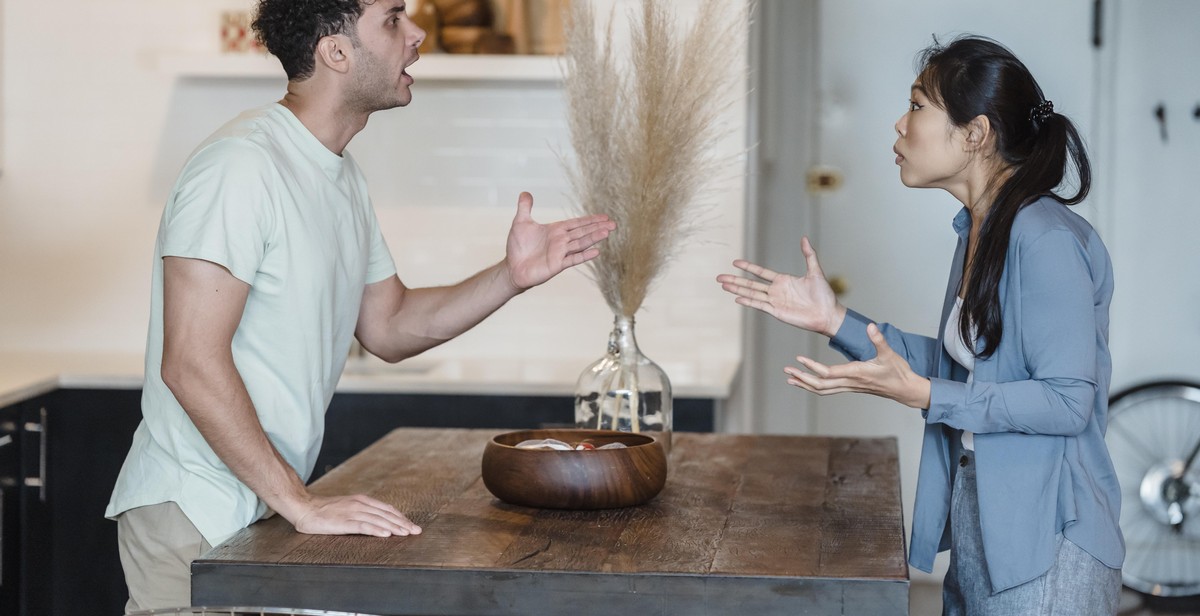Building Trust in Love: A Step-By-Step Guide
Trust is the foundation of any healthy relationship. Without trust, a relationship is bound to fall apart sooner or later. Trust is not something that can be built overnight; it requires time, effort, and patience. However, if you’re willing to put in the work, you can build trust in your relationship and make it stronger than ever.
Why Is Trust Important in a Relationship?
Trust is essential in a relationship because it allows you to feel safe and secure with your partner. When you trust your partner, you’re able to be vulnerable with them and share your deepest thoughts and feelings. Trust also allows you to have faith in your partner’s actions and decisions, which leads to a more harmonious relationship.
On the other hand, when there is a lack of trust in a relationship, it can lead to feelings of insecurity, jealousy, and resentment. It can also cause communication breakdowns and make it difficult to resolve conflicts.
Steps to Building Trust in Your Relationship
Building trust takes time and effort, but it’s worth it in the end. Here are some steps you can take to build trust in your relationship:
- Be honest and transparent with your partner
- Follow through on your promises
- Communicate openly and effectively
- Show empathy and understanding
- Avoid keeping secrets or hiding information
- Apologize when you’re wrong and make amends
Remember, building trust is an ongoing process. It’s important to continue to work on it throughout your relationship to keep it strong and healthy.

Why Trust is Important in Love
Trust is the foundation of any healthy and long-lasting relationship. Without trust, a relationship cannot thrive and grow. As a love and relationships psychology guru, I have seen firsthand the devastating effects of broken trust in relationships.
Personal Experience with Trust Issues
I myself have struggled with trust issues in the past, stemming from past experiences and insecurities. It took a lot of self-reflection and communication with my partner to overcome these trust issues. But once we were able to establish trust in our relationship, it brought us closer together and strengthened our bond.
The Psychology of Trust in Love
Trust is a key component in creating a secure attachment style in relationships. When we trust our partner, we feel safe and secure in the relationship. This allows us to be vulnerable and open with our partner, which in turn deepens our connection. Trust also allows us to have a sense of predictability in the relationship, which reduces anxiety and stress.
On the other hand, when trust is broken, it can lead to feelings of betrayal, hurt, and insecurity. It can cause the attachment style to shift to an anxious or avoidant style, which can further damage the relationship.
In summary, trust is crucial in building and maintaining a healthy and fulfilling relationship. It takes time, effort, and communication to establish trust, but the rewards are immeasurable.

Step 1: Communication
Communication is the foundation of any healthy relationship. It’s the key to building trust, resolving conflicts, and strengthening emotional bonds. Without open and honest communication, misunderstandings can arise, leading to hurt feelings, resentment, and a breakdown of trust. That’s why it’s important to make communication a priority in your relationship.
The Importance of Open Communication
Open communication means being transparent and honest with your partner. It means expressing your thoughts, feelings, and concerns without fear of judgment or rejection. When you communicate openly, you create a safe space for your partner to do the same, which can help you both feel heard and understood.
On the other hand, when communication is closed off, it can lead to misunderstandings, assumptions, and mistrust. If you or your partner feel like you can’t express yourselves freely, it can create a rift in your relationship that’s hard to repair.
How to Communicate Effectively
Effective communication is about more than just talking. It’s about actively listening, being empathetic, and staying focused on the present moment. Here are some tips for communicating effectively with your partner:
- Be present: When you’re talking to your partner, give them your full attention. Put away your phone, turn off the TV, and make eye contact.
- Listen actively: Don’t just hear what your partner is saying, actively listen to them. Repeat back what they’ve said to make sure you understand, and ask questions to clarify if needed.
- Stay calm: If you feel yourself getting emotional, take a break and come back to the conversation later. It’s hard to communicate effectively when you’re upset.
- Be honest: Honesty is key to building trust. If you’re feeling hurt, angry, or confused, express those feelings in a calm and respectful way.
By making communication a priority and practicing effective communication skills, you can build trust and strengthen your relationship over time.

Step 2: Consistency
When it comes to building trust in love, consistency is key. Trust is built over time through small actions and interactions that demonstrate reliability and dependability. Without consistency, it can be difficult to establish a strong foundation of trust in a relationship.
Why Consistency is Key in Building Trust
Inconsistent behavior can lead to confusion, doubt, and mistrust in a relationship. When your actions are inconsistent, it can be difficult for your partner to rely on you or feel secure in the relationship. On the other hand, consistent behavior builds a sense of predictability and stability that can help to strengthen trust.
How to Be Consistent in Your Actions
Being consistent in your actions requires effort and intentionality. Here are some tips to help you be more consistent in your relationship:
- Communicate openly: Make sure your partner knows what to expect from you and that you’re on the same page about important aspects of your relationship.
- Follow through on your commitments: If you say you’re going to do something, make sure you do it. This shows your partner that they can rely on you.
- Be present: Show up for your partner consistently, both physically and emotionally. This means being there for them when they need you and actively engaging in the relationship.
- Apologize and make amends when necessary: No one is perfect, and mistakes will happen. When they do, take responsibility for your actions and work to make things right.
| Consistent Behavior | Inconsistent Behavior |
|---|---|
| Regularly checking in with your partner to see how they’re doing | Going days without speaking to your partner without explanation |
| Showing up on time for dates and appointments | Consistently running late or canceling plans last minute |
| Being honest and transparent with your partner | Lying or keeping secrets from your partner |

Step 3: Honesty
Honesty is one of the most important values in building trust in a relationship. Without honesty, trust cannot be established and maintained. Honesty is not just about telling the truth; it is also about being transparent, open, and vulnerable with your partner. When you are honest with your partner, you show them that you respect and value them enough to be truthful.
The Value of Honesty in Building Trust
Honesty is the foundation of any healthy relationship. It creates a safe environment where both partners can be themselves without fear of judgment or rejection. When you are honest with your partner, you build trust and intimacy, which are essential for a long-lasting relationship. Honesty helps you to avoid misunderstandings, conflicts, and hurt feelings.
How to Be Honest with Your Partner
- Be clear and direct: When you are honest, be clear and direct in your communication. Avoid being vague or beating around the bush.
- Be vulnerable: Honesty requires vulnerability. Share your true thoughts and feelings, even if they are difficult to express.
- Listen: Honesty is a two-way street. Listen to your partner’s thoughts and feelings without judgment or interruption.
- Apologize when necessary: If you have been dishonest in the past, apologize and make amends. Be willing to take responsibility for your actions.
Remember, honesty is not always easy, but it is necessary for a healthy and trusting relationship. When you are honest with your partner, you create a strong foundation for your relationship to grow and thrive.

Step 4: Vulnerability
When it comes to building trust in a relationship, vulnerability is a crucial step. Vulnerability means allowing yourself to be open and honest with your partner, even when it’s difficult or uncomfortable. It means sharing your fears, insecurities, and weaknesses with your partner, and trusting that they will accept and support you.
Why Vulnerability is Necessary for Building Trust
Vulnerability is necessary for building trust because it allows you to create a deeper emotional connection with your partner. When you’re vulnerable, you’re showing your partner that you trust them enough to share your innermost thoughts and feelings. This creates a sense of intimacy and closeness that can’t be achieved through superficial conversations.
Furthermore, vulnerability also allows your partner to see your true self, including your flaws and imperfections. When your partner accepts and loves you despite your flaws, it strengthens the bond between you and builds trust.
How to Build Vulnerability in Your Relationship
Building vulnerability in your relationship takes time and effort. Here are some tips to help you get started:
- Start small: Begin by sharing something small, like a fear or a personal struggle, and work your way up to more significant topics.
- Be honest: When you’re vulnerable, it’s essential to be honest with your partner. Don’t sugarcoat or downplay your feelings.
- Listen actively: When your partner is vulnerable with you, make sure to listen actively and respond with empathy and support.
- Practice regularly: Vulnerability is a skill that takes practice. Make an effort to be vulnerable regularly, even when it feels uncomfortable.
Remember, vulnerability is a two-way street. To build trust, both partners need to be willing to be open and honest with each other. By practicing vulnerability regularly, you can create a deeper emotional connection with your partner and build a stronger, more trusting relationship.

Step 5: Forgiveness
Forgiveness is an essential component of building trust in a relationship. Without forgiveness, it can be difficult to move past hurt and betrayal. It is important to note that forgiveness does not mean forgetting or excusing your partner’s actions. Instead, it means releasing the negative emotions associated with the hurt and choosing to move forward.
The Role of Forgiveness in Building Trust
Forgiveness is necessary for rebuilding trust because it allows both partners to let go of the past and focus on the present and future. When forgiveness is given, it shows that the hurt partner is willing to work towards rebuilding the relationship. It also shows the partner who made the mistake that they are still valued and loved despite their actions.
How to Forgive Your Partner
Forgiving your partner can be a difficult process, but it is necessary for building trust in the relationship. Here are some steps to help you forgive your partner:
- Take time to process your emotions and understand why you were hurt.
- Communicate your feelings with your partner and express the need for forgiveness.
- Listen to your partner’s perspective and try to understand their actions.
- Make a conscious decision to forgive your partner and let go of negative emotions.
- Work together with your partner to rebuild trust and strengthen the relationship.
Remember, forgiveness is a process and it may take time to fully let go of negative emotions. With patience and commitment, forgiveness can lead to a stronger and more trusting relationship.

Conclusion
Trust is the foundation of any healthy relationship. Without it, relationships can crumble and fall apart. Building trust takes time, effort, and a lot of patience. It’s not something that can be achieved overnight, but with the right mindset and approach, it’s possible to build a strong and lasting bond with your partner.
Recap
In this guide, we’ve covered a step-by-step process for building trust in love:
- Identify your trust issues
- Communicate with your partner
- Be honest and transparent
- Follow through with your actions
- Forgive and move forward
Remember, building trust is an ongoing process. It requires consistent effort, communication, and understanding. Be patient with yourself and your partner, and don’t be afraid to seek outside help if needed. With time and dedication, you can create a strong and loving relationship built on trust.
Final Thoughts
As a love and relationships psychology guru, I’ve seen firsthand the importance of trust in a relationship. It’s the foundation that allows couples to grow and thrive together. Building trust takes time, but it’s worth the effort. By following the steps outlined in this guide, you can begin to create a stronger, more trusting relationship with your partner.
| Remember: | Trust is earned, not given. It takes time and effort to build, but it’s worth it in the end. |
Keep an open mind, be patient, and always communicate with your partner. With these tools, you can create a relationship that’s built on a foundation of trust and love.
